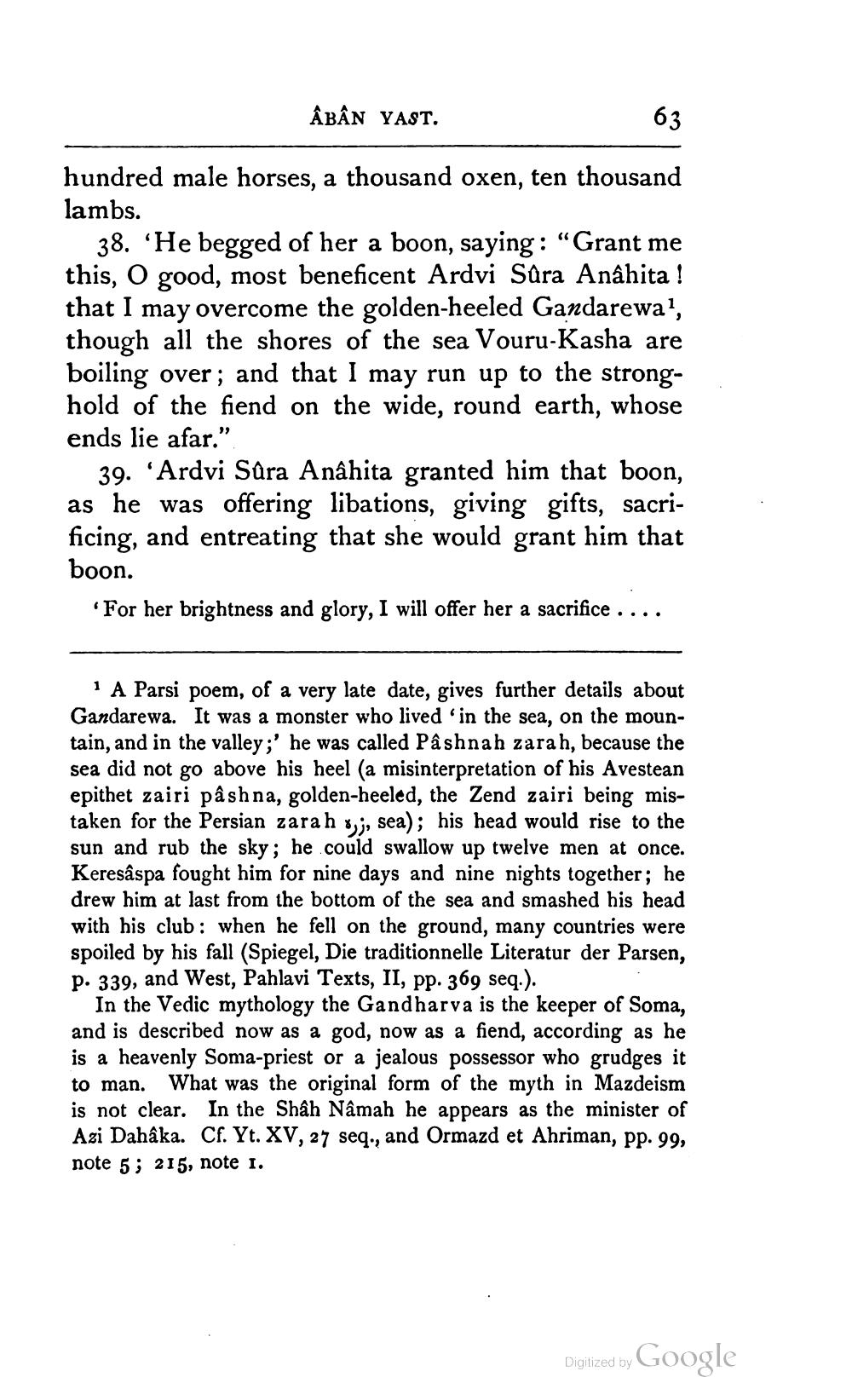________________
ÂBÂN YAST.
hundred male horses, a thousand oxen, ten thousand lambs.
38. 'He begged of her a boon, saying: "Grant me this, O good, most beneficent Ardvi Sara Anâhita ! that I may overcome the golden-heeled Gandarewa', though all the shores of the sea Vouru-Kasha are boiling over; and that I may run up to the stronghold of the fiend on the wide, round earth, whose ends lie afar.”
39. 'Ardvi Sûra Anâhita granted him that boon, as he was offering libations, giving gifts, sacrificing, and entreating that she would grant him that boon.
For her brightness and glory, I will offer her a sacrifice ....
1 A Parsi poem, of a very late date, gives further details about Gandarewa. It was a monster who lived in the sea, on the mountain, and in the valley;' he was called Pâshnah zarah, because the sea did not go above his heel (a misinterpretation of his Avestean epithet zairi pâshna, golden-heeled, the Zend zairi being mistaken for the Persian zara hyj, sea); his head would rise to the sun and rub the sky; he could swallow up twelve men at once. Keresâspa fought him for nine days and nine nights together; he drew him at last from the bottom of the sea and smashed his head with his club : when he fell on the ground, many countries were spoiled by his fall (Spiegel, Die traditionnelle Literatur der Parsen, p. 339, and West, Pahlavi Texts, II, pp. 369 seq.).
In the Vedic mythology the Gandharva is the keeper of Soma, and is described now as a god, now as a fiend, according as he is a heavenly Soma-priest or a jealous possessor who grudges it to man. What was the original form of the myth in Mazdeism is not clear. In the Shâh Nâmah he appears as the minister of Azi Dahâka. Cf. Yt. XV, 27 seq., and Ormazd et Ahriman, pp. 99, note 5; 215, note i.
Digitized by Google




